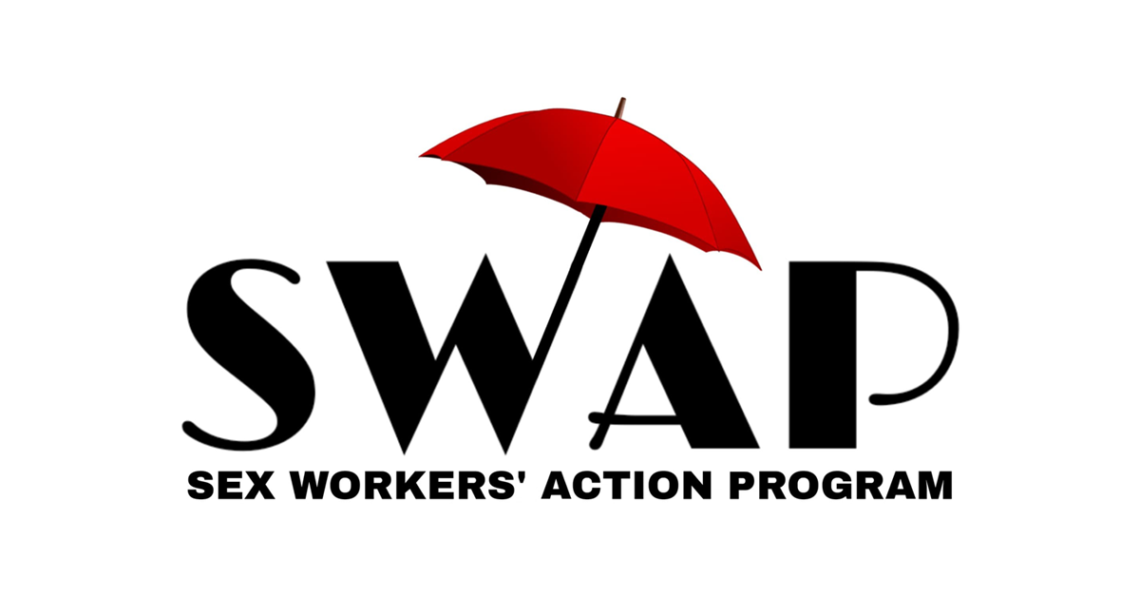A Vindication of the (Charter, Human) Rights of (Sex) Workers in Canada
In 2013, the Supreme Court of Canada unanimously ruled several criminal provisions pertaining to sex work were unconstitutional under the Canadian Charter of Rights and Freedoms. Many sex workers in North America were hopeful Canada might finally recognize sex work as work, and those who labour in the industry would finally benefit from the wealth they produce via the services they provide.
However, rather than ensuring the safety and legal security of these marginalized members of the working class, Parliament passed the Protection of Communities and Exploited Persons Act (PCEPA)1, further disenfranchising and criminalizing sex workers. PCEPA was inspired by the myth of “Swedish regimes” which claim to “criminalize clients but decriminalize sex workers.” While sex workers may be immune to prosecution under certain provisions, the context of criminality sex workers labour under shapes how they organize their work to avoid detection of law enforcement. Surveilled and profiled by law enforcement, sex workers are hindered in their ability to negotiate safer working conditions and are left vulnerable to gender-based violence.
On April 21, 2021, an Ontario Supreme Court Judge ruled legal provisions designed to “ban sex workers from being able to work safely, including by being able to advertise on third-party platforms, hire security, work together and communicate with clients” are unconstitutional; however, the overall act remains in effect to this day. PCEPA and its previous incarnations sustain regressive social norms severely limiting sex worker constitutional rights to life, liberty, and security of the person.
On April 21, 2021, an Ontario Supreme Court Judge ruled legal provisions designed to “ban sex workers from being able to work safely . . . ” are unconstitutional; however, the overall act remains in effect to this day.
As a result of criminal liability the law imposes, in-person sex workers are prohibited from negotiating the terms and conditions of their employment in the open, while simultaneously barred from legally working collectively, establishing workplace co-operatives, or simply sharing a hotel to split costs. The law also criminalizes others whose labour facilitates any paid sex as accomplices, prohibiting third-party assistance to sex workers such as advertising or marketing the sale of sexual services, purchasing sexual services, or receiving a material benefit from the sale of sex. In addition to all the prohibitions, federal income support initiatives such as the Canada Emergency Response Benefit are rendered inaccessible to workers who sell sex. Instead of providing funding to multiply-marginalized workers2, this act and others3 provides it to often-predatory law enforcement, jeopardizing sex workers, their clients, families, and networks of support.
More than ever, sex workers are realizing the necessity to join together to collectively safeguard and develop their economic, social, and educational interests as an industry.
On the legal front, six sex workers and the Canadian Alliance for Sex Work Law Reform have launched a Charter challenge to strike down current inequitable prohibitions4. The importance of this constitutional challenge cannot be understated. In addition to allowing sex workers to advertise on third-party platforms, hire security, and communicate openly with clients, should Canada strike down the act nation-wide, sex workers will be legally enfranchised to join together for their mutual defense and industrial progress in labour unions.
Outside the courtrooms, sex workers are not waiting for Canada’s regulatory regulations to catch up with reality. Organizing under the Canadian section of the Industrial Workers of the World (IWW), workers are showing the Canadian labour movement what it means to refocus on the fundamentals of unionism long forgotten as it is reduced to little more than a set of Collective Agreements rendered increasingly unenforceable by frequent use of strike-breaking back-to-work legislation. The IWW, which organizes many workers under the threat of policing, understands that criminalization never makes anyone safer – what does is workers getting together, identifying their problems, and acting together to directly safeguard their interests as an industry.

The IWW’s Sex Workers Industrial Movement and adjacent efforts are enabling sex workers to conduct much needed industrial research about the challenges and needs of their industry, educate and organize themselves to combat regressive terms of service on online platforms such as Onlyfans, and collaborate to make the industry safer.
The victory in Ontario and the Alliance challenge to the law have the promise of reducing the quantity and complexity of obstacles sex workers face in taking measures that increase their safety.
In the meantime, and as ever, the only thing workers can count on is organizing together.
If you are a sex worker looking to organize, email [email protected] for culturally competent unionization support.
Jelena Vermilion is a full-service sex worker of almost a decade, an IU 690 delegate of the IWW, and the Executive Director of the direct action, autonomous mutual aid group Sex Workers’ Action Program of Hamilton (SWAP Hamilton), a member-organization of the Canadian Alliance for Sex Work Law Reform and the Global Network of Sex Work Projects.
Resources:
Listen to sex workers: for more information about the dialogue in the SWAP Hamilton May Day video, please see: https://industrialworker.org/sex-workers-against-work/
Keep informed on the fight for reform of Canadian laws around sex work: Website | Twitter | Facebook
Learn about sex work from their perspectives with these books about sex work
To see some historical sex work activism, see George Stamos’ film: Our Bodies Our Business
CASWLR has compiled a comprehensive set of recommendations on how to reform federal, provincial, and municipal laws used to unfairly target sex workers in particular.
For an extended version of this article, Listen Here.
Jelena Vermilion is a full-service sex worker of almost a decade, an IU 690 delegate of the IWW, and the Executive Director of the direct action, autonomous mutual aid group Sex Workers’ Action Program of Hamilton (SWAP Hamilton), a member-organization of the Canadian Alliance for Sex Work Law Reform and the Global Network of Sex Work Projects.
Resources:
Listen to sex workers: for more information about the dialogue in the SWAP Hamilton May Day video, please see: https://industrialworker.org/sex-workers-against-work/
Keep informed on the fight for reform of Canadian laws around sex work: Website | Twitter | Facebook
Learn about sex work from their perspectives with these books about sex work
To see some historical sex work activism, see George Stamos’ film: Our Bodies Our Business
CASWLR has compiled a comprehensive set of recommendations on how to reform federal, provincial, and municipal laws used to unfairly target sex workers in particular.
For an extended version of this article, Listen Here.
Endnotes:
[1] Anti-trafficking “moral panic” initiatives such as this act increase the policing and monitoring of sex workers and their workplaces and are a way to specifically target migrant sex workers.
[2] Sex workers, uniquely bonded by criminalization and stigmatization, contain a diversity of experience, including BIPOC, trans or non-binary members, disabled workers, and parents.
[3] Local regulations also harm sex workers; the Ontario government’s current “anti-trafficking strategy” siphons over $300 million dollars towards policing rather than social services for the affected community..
[4] The lawsuit demonstrates that PCEPA prohibitions violate Canadian sex workers’ Charter rights to security, personal autonomy, life, liberty, free expression, free association, and equality.

